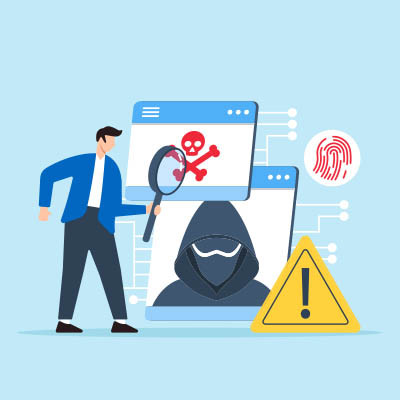Before you know it, Windows 10 will be on its way out, as it will reach its end-of-support date on October 14, 2025. Unfortunately, whether you’re ready or not, this day will come. In the past, you could pay for extended security updates, but is this actually a feasible solution for a small business?
Home
About Us
IT Services
Understanding IT
- Understanding General Data Protection Regulation Compliance
- Understanding Automation
- Understanding Ransomware
- Understanding Shadow IT
- Understanding Your Virtual Identity
- Understanding the Modern Office
- IT Threat Glossary
- Understanding Business Continuity
- Windows Server 2003: End of Life
- Understanding the Internet of Things
- Understanding Network Security
- Understanding SOX
- Understanding BYOD
- Understanding PCI DSS
- Windows XP End of Life
- Understanding HIPAA
- Cloud Computing
News
Blog
Support
Contact Us
(713) 979-2090
- Register
- Login
Zinc Blog
Zinc has been serving the Texas area since 2017, providing IT Support such as technical helpdesk support, computer support, and consulting to small and medium-sized businesses.
Business continuity is a critical element of any organization’s preparations for the future, including how comprehensive the backup is designed to be. Let’s discuss the steps that businesses—especially small ones—need to take to ensure their data is protected.
Tax season is coming, at least in the United States, and while it’s not the most exciting time of the year, it’s important nonetheless. Hackers know this, too, so you might get some unsolicited text messages or emails claiming to be the Internal Revenue Service. Today, we want to highlight the importance of awareness this tax season, and what you should anticipate over the next couple of months.
How much does your business depend on its mobile technology? More likely than not, you have smartphones implemented on your network in some capacity, whether it’s for productivity or security. That said, you need to have a strategy in place to manage and maintain them, which is where mobile device management comes in.
Social media is addictive, this much is true. For the people who never have taken the leap and put themselves out there, it is often maddening to see people jump from outrage about one issue to another issue without any real resolution. This week, we will discuss the neverending stream of controversy that is brought on by social media and some things you can do to keep it from being a problem for you.
While we may be IT professionals and—as such—take security extremely seriously, it can occasionally help to discuss business cybersecurity with a different approach… such as a daytime soap opera. What follows is one of these occasions.
Welcome to Oak Falls, a cozy little coastal hamlet shielded by the trees that give it its name. Unfortunately, these trees do little to protect the residents from the cyberthreats that loom over us all. Like bytes through the Internet, these are the Zero-Days of Our Lives.
Good communication is key for any business. Today, there are tons of ways companies stay connected: phone calls, emails, messaging apps, and video meetings. While all these tools can be helpful, they can also get confusing if not managed properly. Let’s break down the basics of business communication so it’s easy to understand.
You know what they say: “Don’t make a promise that you can’t keep.” Making promises to your clients and customers can be a sticky business, and we all know that IT can be a bit unpredictable, making promises difficult to manage. Still, we’re confident that we can promise the following three guarantees for your business.
Accessibility is a crucial but often underappreciated aspect of modern life… particularly in the workplace and the technology enabling any work that needs to be done. Fortunately, the Windows OS has quite a few features intended to boost its accessibility baked in.
Let’s review some of them so you know what’s available to you.
Following the heinous attacks that caused the Twin Towers to fall in New York on September 11, 2001, you heard about terrorism every single day for years. The “War on Terror” waged for over a decade toppled multiple governments and set a precedent that terrorists will be relentlessly pursued. While there have been a few massive terrorist events that have shocked the world in the subsequent years after 9/11, cyberspace has become one of the biggest battlegrounds. Today, we’ll briefly discuss the rise of cyberterrorism.
Unless you’ve been living completely off the grid, you’ve probably heard of Facebook, Twitter (now X), and Instagram. Most people are on at least one of these platforms—or maybe they’re on TikTok, YouTube, or LinkedIn. Businesses have also relied on these platforms for marketing. But even though these companies are worth billions, people are starting to question whether these platforms can keep going as they are. In this blog, we’ll break down some of the problems with today’s biggest social media platforms and why alternatives might be the future.
Phishing attacks are the most common security risk your business faces, and if you’re not careful, you (or your employees) could fall victim to them with ease. All it takes is clicking on the wrong link or downloading the wrong file, and boom, your business is dealing with a full-blown security breach. To prevent this, we want to cover some of the major signs you’re dealing with a phishing message and what you can do about it.
Software does plenty for your business, so it is inevitable that you are going to need to make plans to get applications that can best help it run. Acquiring software used in mission-critical tasks can be tough because there are similar products with slightly different integrations and slightly different features that could determine the effectiveness and ROI it will have for your business. Let’s take a look at how to get the right, and right amount, of software and how having too much technology can be a drain on your business.
Have you just purchased a new computer? That’s awesome! But what about your old one? You can’t just toss it in the trash—there’s a safe way to handle it to protect your personal info and help the environment. Let’s go over what you need to do.
While we hate to be the bearers of bad news, it would be irresponsible of us not to address the fact that 2025 is shaping up to be a challenging year where business technology is concerned.
Let’s go over a few predictions being shared about the industry, and how these situations can be addressed.
The Internet of Things, or IoT, refers to the countless devices connected to the internet today. These include everything from smartwatches to connected thermostats. For businesses, figuring out how to use IoT effectively can feel overwhelming. Not only do you have to think about the new possibilities these devices bring, but you also need to take their security seriously—especially since many IoT devices have little to no built-in protection. Let’s take a look at why IoT matters and how you can use it to be an effective tool for your business.
Supercharging your productivity is all about making small, deliberate changes that create lasting impacts. Unfortunately, there is no roadmap to follow, so you will have to figure it out for yourself. In today’s blog, we talk about prioritization, time management, and focus and how they each work to help you get more done.
If your business has a server room—or maybe just a small, stuffy closet with some machines in it—you might wonder if you’re taking care of it properly. Servers need constant care to work their best, and if you’re unsure how to manage them, it’s smart to get help from a managed IT company. This way, your servers are in good hands, and you get the most out of them.
This is the final part in our 5-part series. You are on the last leg of the journey, and just a few steps away from drastically improving your overall cybersecurity. We wanted to thank you in advance for going through these steps, and if you are finding this article for the first time, be sure to click on #Password Guide at the bottom of this page to see all of the other posts in the series.
This is part 4 of our 5-part series on getting your digital life in order! So far, we’ve discussed the importance of using strong, unique passwords for all of your online accounts, how to establish a primary email address so all of your accounts are tied to a single inbox, how to set up MFA to secure that email and your other accounts, and finally, we’re going to discuss setting up a password manager and going through the process of logging all of your accounts into that password manager.
- You are here:
- Home /
- Blog /
- Zinc IT Team /
- Is Your IT Department Stepping Up?



















![How to Get Your Passwords in Order, and Keep It That Way [Part 5 of 5]](https://www.zinctx.com/images/easyblog_shared/January_2025/1-15-25/b2ap3_large_Protection_602670589_400x400.jpg)
![How to Get Your Passwords in Order, and Keep It That Way [Part 4 of 5]](https://www.zinctx.com/images/easyblog_shared/January_2025/1-13-25/b2ap3_large_ProtectPassword_612796604_400x400.jpg)